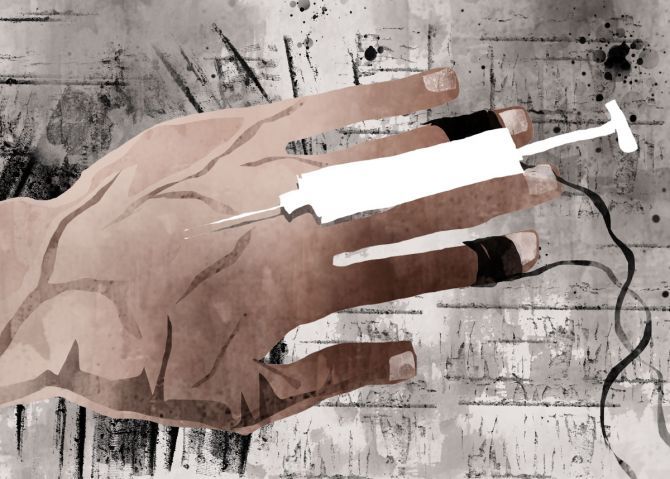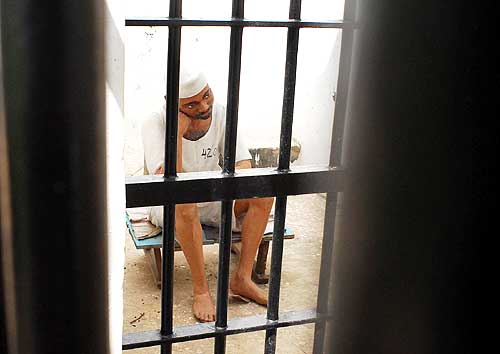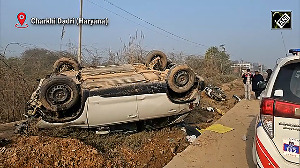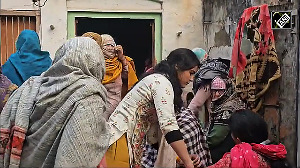'An international survey has shown that India figures high in the list of countries on people's approval of torture.'
'What is surprising is that even if you look at the many vibrant social movements we've had, there's been no campaign that predominantly focuses on police torture.'

In the space of seven weeks, four people have died either in police custody or due to alleged police torture in UP.
In Maharashtra, cops suspended because of their alleged role in custodial deaths, have been reinstated.
Why is police torture so routine in India? Professor Jinee Lokaneeta of Drew University in the US, who has written two books on the subject of policing and torture in India, discussed the possible reasons with Rediff.com Senior Contributor Jyoti Punwani in the second part of multi-part interview:
Why do you think torture is not a topic of concern in India?
One reason is the routine nature of torture.
But another is also the tendency historically among activists and scholars, of thinking of the police as just another instrument of the State and hence inherently violent.
In the process, we have developed a monolithic understanding of the police which has not allowed us to look at police more carefully, as an institution, and at aspects of police work.
Civil liberties and democratic rights groups have been documenting instances of torture and custodial deaths since the 1980s. But that didn't lead to a lot of public conversation or even critical scholarship by academics on the police, prison and state violence, as sites to be studied.
In the last few years, however, there seems to be a greater focus on trying to understand the police as an institution, and on torture in India.
Where is the evidence of this?
The outrage after the custodial deaths of the father and son P Jayaraj and J Bennicks in Tamil Nadu last year, was reflective of the beginning of this conversation. We didn't see this earlier.
In the last few years, there have been three or four books on policing, including mine; accounts have been written by those who've been in prison, like Abdul Wahid Sheikh's Begunah Qaidi. (Sheikh was the only one to be acquitted in the 2006 Mumbai blasts case.) The Tamil film Visaranai has an explicit focus on torture; and then there's the campaign on the Anti-Torture Bill.
Organisations such as the Criminal Justice and Police Accountability Project have brought attention to police and caste, specially the police's attitude towards denotified tribes.
Yet, custodial deaths continue and no policeman gets punished.
A small fraction have got punished, their details are available with the Asian Centre for Human Rights. A doctor's report somewhere, a magistrate doing his/her duty somewhere... these have helped. An FIR was filed in the Jayaraj case and the trial is on.
Well, an FIR was filed in 2004 against Sachin Waze and three others in Khwaja Yunus' custodial death case too. The trial is still on, with the State having dismissed the public prospecutor. Doesn't the State always protect policemen?
True, the State can do so. The provision of sanction for prosecuting policemen is usually used to thwart prosecution and should be addressed. This is another instance of how the law facilitates police violence.
Even when sanction is granted, it is usually against lower level policemen though those at higher levels also enable torture.

Do governments protect such policemen also because people in general don't see police violence as wrong?
That is one reason. An international survey has shown that India figures high in the list of countries on people's approval of torture.
But what is surprising is that even if you look at the many vibrant social movements we've had, there's been no campaign that predominantly focuses on police torture. The issue comes to the fore only when there's police repression against a mass movement, like say, a movement against land acquisition. It's significant that the Anti-Torture Bill was drafted by NGOs, not progressive forces.
In contrast, in the US, the Black Lives Matter movement made police violence a moment of reckoning.
No government can ignore it. It has become a central issue of concern in the functioning of the US as a democracy. But the many human rights groups in India have not managed to make it a central issue of concern. Why?
- Part III: 'What enables police violence?'
Feature Presentation: Aslam Hunani/Rediff.com











 © 2025
© 2025